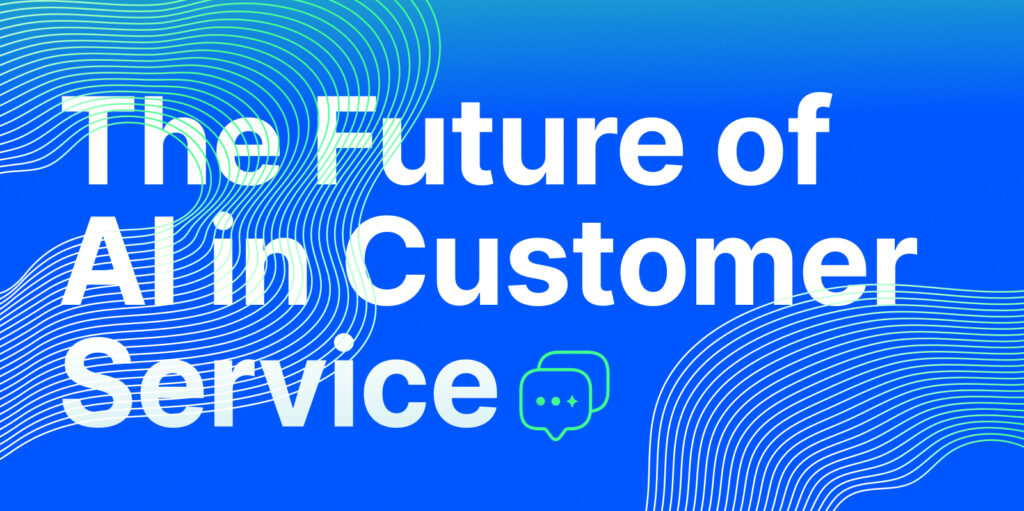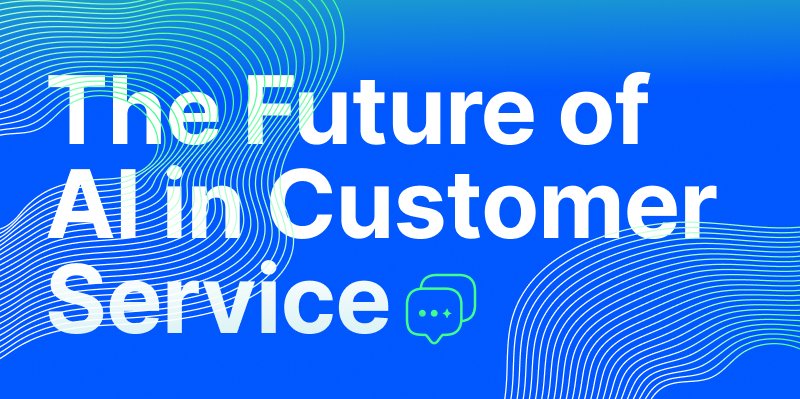The Future of AI in Customer Service Blending Innovation and Personalization

Introduction
The evolution of AI in customer service signifies more than just a technological advancement. It marks a revolutionary shift in how businesses interact with customers. As AI technology continues to grow, it has the potential to automate and elevate every interaction by combining speed with personalization and accuracy with empathy, creating unparalleled customer experiences.


Current State of AI in Customer Service
Transformative Power of AI
AI has gradually become a key player in customer support, shifting from simple task automation to being a strategic asset in customer service, greatly enhancing responsiveness and personalization. Today’s AI tools are not merely tech stack add-ons; they are redefining brand-customer interaction.
Advancements in AI Tools
- Traditional Chatbots*: These rely on predefined scripts to respond to common queries, like store hours or return policies. While useful for routine tasks, they often lack the capability to handle complex, personalized questions.
- AI Chatbots*: Moving beyond rigid scripts, AI chatbots utilize Natural Language Processing (NLP) to understand intent and provide more flexible and responsive interactions, learning and improving responses over time.
- AI Agents*: The pinnacle of current AI technology, these agents combine NLP, machine learning, and omnichannel integration to provide human-like interactions. Capable of handling complex issues, they deliver a fluid and personalized service experience across multiple channels such as chat, email, social media, and phone.
AI Capabilities Today
- Omnichannel Support*: Modern AI seamlessly operates across various channels, ensuring a cohesive customer service experience.
- Contextual Responses*: By leveraging machine learning, AI provides personalized and relevant responses based on customer data, past interactions, and personal preferences.
- Sentiment Detection*: AI can adjust its responses in real-time by detecting customer emotions, offering empathetic solutions to de-escalate potentially negative exchanges.
- Proactive Recommendations*: Analyzing customer behavior and history, AI can offer timely recommendations and upsell products, enhancing customer experience.
Future Trends in AI Customer Service
Emotional Intelligence and Predictive Support
As AI technology progresses, AI agents are expected to evolve into emotionally intelligent entities capable of recognizing complex emotional cues beyond basic sentiment analysis. This includes detecting non-verbal signals such as voice intonation and physiological indicators, allowing AI to fine-tune interactions with an empathetic approach.
Predictive Engagement
- Personalization at Scale*: AI will proactively anticipate customer needs before they are explicitly expressed by analyzing browsing history, purchase patterns, and behavior.
- Preemptive Actions*: Detecting early warning signs of potential customer dissatisfaction, AI can trigger interventions, such as offering personalized discounts or additional resources to prevent churn.
Expanding Problem-Solving Capabilities
AI agents are continually improving in handling complex, multi-step workflows.
- Autonomous Problem Solvers*: Future AI will manage end-to-end processes with minimal oversight.
- Quantum Computing Enhancement*: This will enable AI to analyze massive datasets at unprecedented speeds, offering insights and resolving issues with great accuracy.
AI-Powered Customer Service: The Path Forward
The integration of AI in customer service is fast creating a landscape where mundane customer interactions are less transactional and more conversational, fostering a deeper connection between brands and their customers. As businesses look toward the future, the potential for AI to surpass customer expectations stands unparalleled, promising enhanced loyalty and satisfaction.
Challenges Ahead
While AI offers tremendous opportunities for advancement, companies must be strategic in adopting these technologies to ensure they complement human efforts rather than replace them. Balancing technological capabilities with human touch will be key to unlocking AI’s full potential in customer service.
Conclusion
The road ahead for AI in customer service is promising, with technological advancements enabling businesses to transform interactions into seamless, intelligent, and personalized experiences. As an indispensable ally, AI will guide companies to not only meet but exceed customer expectations, enhancing satisfaction and loyalty in ways previously unimagined.
In the era of AI-driven customer service, organizations that embrace and innovate with AI will lead the way in crafting meaningful and lasting customer relationships, turning customer service into a significant competitive advantage.




